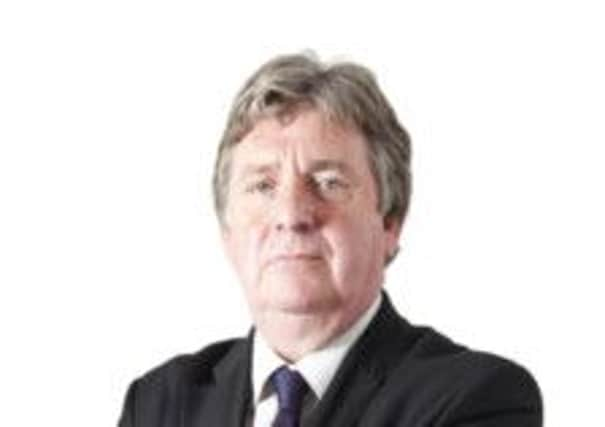Comment: Conflicting inflation adds to confusion


Yesterday’s data saw wider inflation fall to a four-and-a-half year low of 1.5 per cent in May from 1.8 per cent in April.
That would normally be seen as definitely staying the Bank’s hand on a rate rise.
Advertisement
Hide AdAdvertisement
Hide AdBut significantly muddying the waters was separate data from the Office for National Statistics showing that house prices surged within an ace of 10 per cent in April.
That’s the biggest rise in four years, and strong evidence that a housing bubble is developing that needs piercing with monetary tightening forthwith.
Using Napoleon’s famous remark, it is difficult sometimes to know whether Bank governor Mark Carney is a “lucky” general or not.
He took over from Sir Mervyn King when the worst of the downturn was definitely over and the recovery was making steady, if unspectacular, progress.
But no sooner had Carney said last summer that the Bank would only consider raising rates when unemployment came down to a 7 per cent threshold, than the jobless rate went below it and he had to change tack.
Then just before last weekend the governor rattles financial markets by saying rates may rise quicker than they think … and inflationary pressures ease dramatically within days, taking the edge off the gathering momentum for a rate increase.
The housing bubble, however, remains the wildest of cards, and who knows what this will do to the MPC’s future thinking on the issue as the committee publishes the minutes of its June meeting today?
Meanwhile, sterling continues its see-saw ride on either side of the psychologically important $1.70 level as the interest rate debate swings back and forth. My prediction? Despite yesterday’s extraordinarily benign inflation number, I believe a rate rise will come through in November to prick the dangerous housing bubble. The latter is rapidly becoming the worrying only game in town for the rate-setters and I think they will act.
Cable whistling in the wind on long-termism?
Advertisement
Hide AdAdvertisement
Hide AdDESPITE his best efforts over recent years, Business Secretary Vince Cable still believes there is too much short-termism in British business.
He said in a speech to the City’s Chartered Institute of Securities & Investment (CISI) yesterday that almost all the most successful businesses in the UK are foreign-owned, citing the likes of Tata-owned Jaguar, Nissan, Siemens etc. Cable said he believed this was because foreign-owned firms did not have a short-term mindset, and could concentrate on expanding their businesses and generating decent returns over the medium to long term rather than seeking short-term earnings fixes.
He urged members of CISI, the leading examinations and ethics organisation in the City, to also adopt a longer-term perspective when they manage financial assets.
It is a laudable aim.
But one wonders whether it will ever be achievable given that the aspiration for short-term returns has been so hard-wired into the British business psyche since the privatisation boom and Big Bang opening of voracious capital markets in the greed-is-good 1980s.